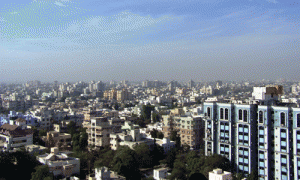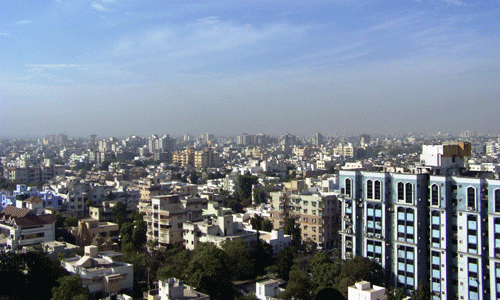By: Manu Sharma
Track2Realty Exclusive
 Experts in the urban policy and planning are of the view that since none of the traditional solutions have worked, it calls for fresh approach and out-of-the-box thinking to make India slum free. Pranay Vakil, Chairman of Knight Frank India outrightly blames the ambiguous policies coming in the way of slum redevelopment. He says there is no dearth of expression of interest and even some of the international players had recently tied-up with the Indian partners for the same. He urges the Government for consistency in policy guidelines if slum free cities have to be a realty reality.
Experts in the urban policy and planning are of the view that since none of the traditional solutions have worked, it calls for fresh approach and out-of-the-box thinking to make India slum free. Pranay Vakil, Chairman of Knight Frank India outrightly blames the ambiguous policies coming in the way of slum redevelopment. He says there is no dearth of expression of interest and even some of the international players had recently tied-up with the Indian partners for the same. He urges the Government for consistency in policy guidelines if slum free cities have to be a realty reality.
“A developer taking risk should be assured that there is a policy guideline in place. Some of these slums in Mumbai fall into Coastal Regulatory Zones (CRZs) and there is no clarity over the policy guideline. Then a developer needs Government machinery that will not have a hands-off approach. The process of policy can be democratic, but the process of implementation has to be authoritative. What will a developer do if 20-30 per cent of the slum dwellers resort to protest? A developer who has put in his money will not wait that some day some Government will take a decision. This is the reason that big developers are not getting into this segment. Only small time developers with political backing are coming forward for slum redevelopment. This has also given rise to intermediaries who in turn become specialists in wrong practices,” he says.
Navin M Raheja, Managing Director of Raheja Developers agrees that slum redevelopment is not like any other real estate business. It has several challenges at several fronts be it mafias, political agendas, bureaucratic hurdles due to lack of initiatives, over expectations of slum dwellers, financial insecurity as the land cannot be mortgaged and an extremely high risk of project getting stuck up in between due to several socio-economic issues.
The major problem in slum redevelopment is availability of alternative land for resettlement of slum dwellers, social issues, political agendas, gestation period, financing issues and above all the extortionist and blackmailing behavior of some section. Because of all these issues many projects failed at the initial stages and many projects are being held up due to these issues and rigidity of some of slum dwellers to shift at new place,” he says.
…..to be continued





